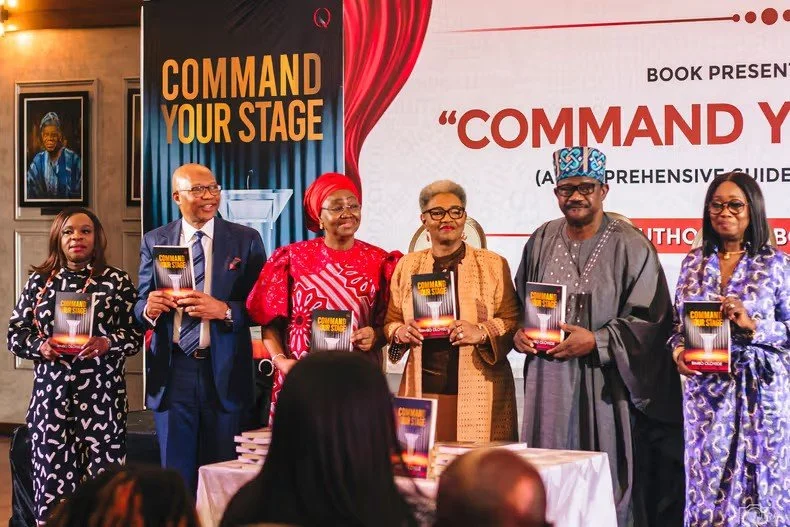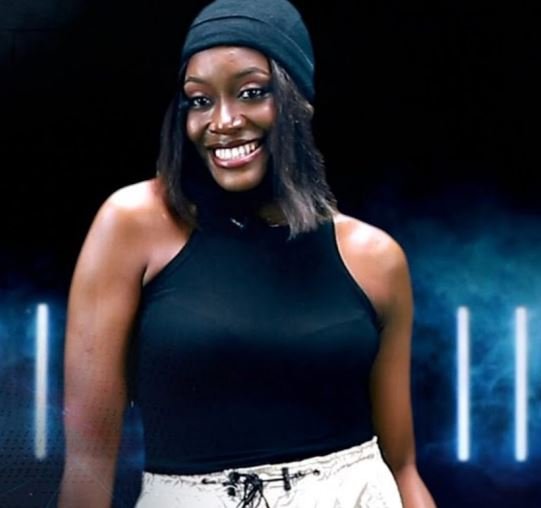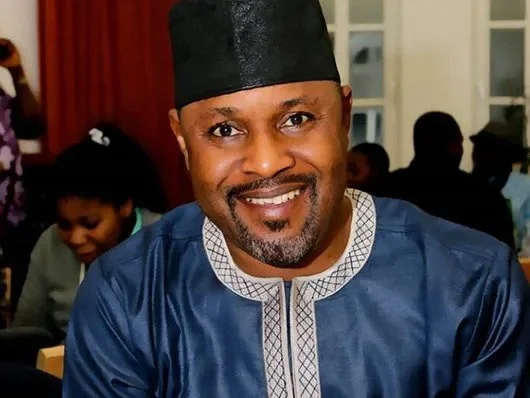What is life like for a retired broadcaster who reported during military era?
As an astute observer of the media, Oloyede had a lot to say on the path forward for Nigerian journalism in an interview with Pulse Nigeria.
Bimbo Oloyede still has a lot of fight in her. In 2015, after over five decades as a broadcast journalist, she retired from the anchor chair hosting The News at 10 on Channels TV.
As one of the foremost Nigerian female broadcasters, she had seen it all, reporting at the peak of military rule from the ‘70s to the late ‘90s when Nigeria transitioned back to democracy.
She has taken to writing in retirement, birthing three books including the Strictly Speaking series, Strictly Speaking: An Oral Guide for Schools and Colleges and Strictly Speaking: Pronunciation Made Easy (with a TV show spinoff and a speech training academy), and her latest, Command Your Stage. She has also landed some acting gigs, playing Dame Wellington Stone in the Africa Magic original series Covenant. This year, she announced a ₦100 million fund for cancer research.
As an astute observer of the media, Oloyede had a lot to say on the path forward for Nigerian journalism in an exclusive interview with Pulse Nigeria.
How did you get your start in broadcasting and journalism?
I began as an assistant producer in the then NBC/TV and then was transferred to presentation when the Network News was launched. I had been instructed by my controller of programmes to report to the newsroom and that’s how my journey as a newscaster began.
I initially presented other TV programmes before I finally landed in the newsroom, as a member of the news department, working as a sub-editor with the news production team. Even as far back as 1976, we were expected to be either reporters or members of the editorial desk, in addition to our duties as newscasters.
What did it mean to be a journalist then and how has that changed today?
It meant a great deal because we were in the eye of whatever storm there was. We were under military rule and there was a great deal of sensitivity about the information being relayed to the public. We often had to explain the source of our news and in the end, our director of news decided to take the heat of the faces they saw on TV by reporting personally to the powers that be, to supply any information that might have troubled them from the previous day’s bulletin.
NTA had the monopoly then, so all eyes were on our station and all the heat landed at our doorsteps.
Today, there is another angle to the story because there are numerous stations to monitor and there is also a government-appointed monitor – the NBC.
They watch, regulate, penalise and sometimes make it difficult for good journalism to prevail. That may also be why there is some degree of self-censorship by individuals, editors and stations because they don’t want to fall foul of the regulators.
However, we do see some mavericks being prepared to damn the consequences. These are the presenters and reporters who go for broke, ready to defend their stances and opinions. Maybe that might be the biggest difference in today’s journalism – opinions.
In terms of the political climate, many say it's a dangerous time to be a journalist; what are your observations on the role of the media in Nigeria today?
The media has a very important role to play, over and beyond its expected role because of the nature of our polity and the underdevelopment that is prevalent in this nation. We have many leaders who clearly have different agendas, and followers who clearly have little information. With neither of them unwilling to take responsibility most of the time, someone must be able to speak truth to power.
Someone must be an advocate for the voiceless and someone must try to inform and educate the public. Most leaders are not doing it, despite having a battalion of information, officers and media aides, and the followers are not asking questions, so, the media must provide the answers.
Being a journalist can never be for the fun of it or because a take-home pay is required. There has never been a more critical time to be a journalist than now. These times require the media to use its power to make Nigeria, even if others are trying to break Nigeria.
It still looks like there is a long way for us in Nigerian news media to go. What can we do to accelerate that growth aside, of course, more money?
Money is the name of the game but it depends on who is spending it and how and why it is being spent! Growth is sometimes accidental but when it happens that way, it is usually at a high cost. However, that cost is bearable when it is properly planned and intentionally initiated. It will cost money, there is no doubt about that but all the contributors to media growth need to decide on a joint vision so that everyone makes the sacrifice.
Individuals will invest in themselves to develop their skills. Media owners will fund and create time and opportunities for in-house and external training. Correspondents will specialise individually and collectively, irrespective of which station or organisation they represent, so that the bar is raised across the board in the reportage of their specific beats for the benefit of consumers. So, let us not deceive ourselves...money must be spent.
I know you have a voracious media diet so let's talk about the news media. Who excites you these days in media and journalism?
I am excited when I see the young journalists who I have mentored or trained moving into senior positions and taking responsibility. I am always interested in seeing what new perspectives they bring to their work. Seeing women getting more involved in investigative journalism is also a pleasing development, especially when you realise that the majority of our underdevelopment issues have a more devastating effect on women and children.
I also like the idea that individuals are identifying existing gaps, establishing new channels and creating niches of exploration. I cannot ignore the role that AI is playing now and that if it is sensibly used, it can enrich journalistic content and simplify research. However, the operative word is ‘sensibly.’
Let’s talk about your new book. Why did you write it and what do you want people to take out of it?
It was a natural follow-up to the two books I had already written about pronunciation and speech. Speaking well starts with paying attention to pronunciation and word choices, so a book about presentation and public speaking was always going to be the next project.
Having said that, Command Your Stage should encourage beginners to get their feet wet and should also inspire the converted, to improve on their performance and step up their game. I want readers to see that anyone can learn these skills and that they are critical to one's personal and professional progress.
Would you ever start a podcast or newsletter?
I started my professional life as an assistant producer, so for me, creating programmes and coming up with different ideas is really not a problem. The issue is sustaining it. There are quite a lot of subjects that interest me and I know that those who follow me on Instagram and LinkedIn often react positively to my posts, keying into my point of view.
However, as a journalist, I like to verify the information I share and that takes time. So, if I had the right kind of assistance in terms of research, brainstorming, a production team, a podcast or a newsletter is not far-fetched.
I think the podcast is easier than the newsletter, however.
What are you grateful for these days?
I am grateful to God for enabling me to have reached the age of 70 in good health and I look forward to many more years on planet earth. I am grateful to the parents I had, who taught me the values I hold dear. I am grateful for my children and grandchildren who give me joy and who keep me on my toes. I am also grateful for the gifts that God has given me which keep my mind active and enable me to be continuously creative and productive.
I think I must also add that I am now wise enough to know that several self-inflicted pressures that seemed critical at one time or another were unnecessary and that life can be very simple when you have a better understanding of it. I am really grateful for that realisation. I am grateful for peace of mind.
What should we expect from you next?
When I turned 70, I formally launched a One Hundred Million Naira Cancer Fund to raise money for cancer research and to buy accessories and equipment to ease the discomfort of cancer patients in public hospitals on treatment days. This is going to take some time and effort and I am hoping that the public will help me achieve the target and beyond. It has started quite slowly but we have a fundraising committee and we are putting things in place under the auspices of the Lifeline Advocacy and Development Initiative to move things forward.









